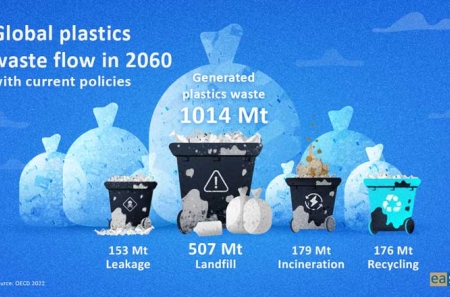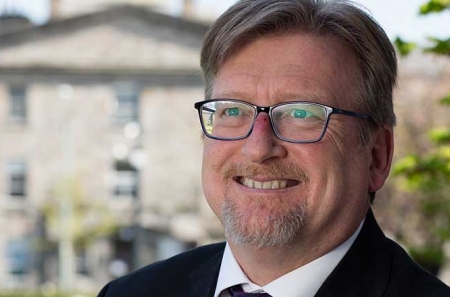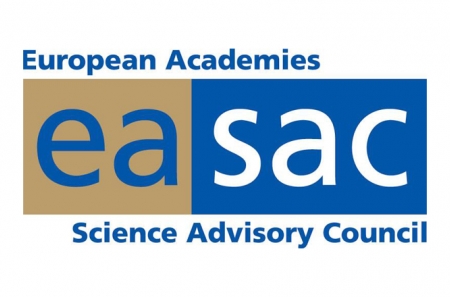
Call for Experts: IAP Biosecurity Working Group
31 July 2020The ad hoc group will now be formally reconstituted.
The InterAcademyPartnership (IAP) Biosecurity Working Group (BWG) was established with members from six academies in 2003. In the years up to 2013/14 it was chaired by the Accademia Nazionale Lincei, the Royal Netherlands Academy of Arts and Sciences (KNAW), and the Polish Academy of Sciences (PAL) and included also the academies of Australia, China, Cuba, Egypt, India, Nigeria, Pakistan, Russia, the United Kingdom and the United States. Since 2014 however, when Poland stepped down from the chair, the Working Group has been operating on an ad hoc basis with strong partnership especially with United States National Academies of Sciences, Engineering, and Medicine and engagement with the United Nations’ Biological and Toxin Weapons Convention (BWC).
The IAP is now seeking to formally reconstitute the Working Group with the following proposed terms of reference.
Objectives
The IAP BWG has three main objectives:
- To promote responsible/ethical research practices in the biosciences and related fields, especially among young/early-career researchers;
- To engage with international organizations, conventions, etc. to feed into their discussions and to provide recommendations on how such advances might be dealt with in the context of such organizations, conventions, etc;
- To engage more IAP member academies in the work of the BWG, especially considering objectives 1 and 2, above.
Regarding these objectives, there is much work to be done to raise awareness among early career life scientists of dual-use research and codes of practices/responsibilities of scientists, especially in low- and middle-income countries (LMICs).
It is also expected that BWG members would follow closely the workings of the BWC, determining upcoming issues and proactively developing scoping papers, advice and recommendations, where appropriate. They may also engage with other international or regional organizations active in biosecurity, such as the World Health Organization and the UN Office of Disarmament Affairs and undertake similar activities.
The work of the IAP BWG obviously has implications across the global scientific community. Therefore, BWG members would also be charged with developing a broader network of academy experts who would act as conduits for the passage of information between international bodies via the BWG to member academies – and vice versa.
As mentioned above, in recent years, much of this work has been done on an ad hoc basis. The BWG would also be charged with developing a vision for the group’s activities for the coming 3-5 years, developing a concept note and a full proposal for funding that would bring together all the above activities along with others that he BWG thinks are relevant. The IAP leadership can help trying to secure such funding.
Membership
Expertise is sought in, inter alia, Bioethics, Infectious diseases, Pandemic research, Biothreat agents, Preparedness and Response, Biosafety, Biohazards, Biorisk management, and Surveillance and forecasting.
Members should be experts in the subject matter and would represent their academy, Regional Network or IAP, as appropriate.
As agreed by the IAP leadership at its Joint meeting in Bern, Switzerland, in September 2018, such IAP Working Groups (WG) and Committees should include:
- A nominated representative of an academy willing to chair the WG;
- Two expert representatives from member academies from each of IAPs four Regional Networks;
- An expert to represent medical academies (may be from a science academy with a strong medical section);
- Representatives of IAP Science and IAP Policy;
- At least one young scientist nominated by either the Global Young Academy or selected from among the IAP Young Physician Leaders network.
Modus operandi
Membership would cover a three-year term with the opportunity to extend to a second term if the incumbent and their nominating academy are willing/agree, and pending approval by the IAP Steering Committee. In the first instance, however, a mechanism to replace some members after three years should be considered so as to avoid all members rotating off together after six years and to assure continuity.
Academies from high-income countries (HICs) are expected to cover the costs of the attendance of their representatives at any events. IAP will seek to provide some support for representatives of academies from low- and middle income countries (LMICs).
No formal in-person meetings are anticipated. The IAP Secretariat will assist WG members to connect via conference calls – timing/regularity to be decided by the chair.
In-person meetings may be arranged on the side of other IAP events, at relevant meetings such as BWC events (typically in Geneva), or other events for which dedicated funding is received.
Operational
Since 2003, the IAP BWG has built a strong track record of publications, events and outreach on issues such as responsible research practices, and science advice to the BWC (which has no formal science advice mechanism), and has built up a global network of experts, including (but not exclusively) among academy membership.
Building on the reputation of IAP and the work it has accomplished in the field of biosecurity, membership of the IAP BWG can reflect well on contributing member academies. As the members of the BWG would represent their academies, so those academies would also have ‘ownership’ of any outputs produced by the group. There is thus a ‘reputation-enhancing’ benefit to academies who successfully nominate members to the BWG.
One way in which the BWG may operate is to identify emerging issues that can be dealt with by convening expert group meetings and synthesizing their discussions into published IAP reports, as has been done regularly in the past.
Small amounts of funding have been either set aside or sourced by IAP to support these activities, and BWG member academies have also raised funds for specific events.
Members of the IAP BWG may also be requested to represent the IAP BWG at international, regional and/or national fora at which issues relevant to the group are being discussed/presented.
The BWG should also seek to increase the network of academicians involved in relevant areas, as well as building links with other like-minded organizations, e.g. for potential collaborative implementation of projects.
Reporting
The chair of the BWG would present an annual summary of the group’s activities and accomplishments to the IAP leadership (typically 1-2 pages) in the first quarter of each year (January-March). While it is not foreseen that these meetings would be in-person, if the opportunity arises, this can be arranged.
The chair may also be asked to respond to queries from the leadership.
The chair would also oversee any relevant text to be reproduced in the IAP Annual Report, drawn largely from the submitted summary.
To express an interest in being nominated by the Royal Irish Academy, please confirm your area(s) of expertise and send a short bio sketch (maximum 3,600 characters) and a short statement outlining your suitability for this project (maximum 1,800 characters) to policy@ria.ie by midday on Tuesday 1st September 2020. Successful candidates will be informed by mid October 2020.
This opportunity is publicly advertised by the Royal Irish Academy and while the Academy is happy to nominate suitable candidates for this role and will fully endorse successful nominations and assist in communicating the delegate’s activities to national academics and policymakers, any financial costs involved in this project must be self-funded by the nominee, or if applicable, funded by the nominee’s home institution
All expressions of interest received will be considered by the Academy’s Policy Oversight Group - the unit tasked with advising upon the initiation and implementation of all of the Academy’s policy and international activities and responsible for overseeing a standardised quality process for all outputs. Chaired by the Academy’s Secretary of Policy and International Relations, the six members of this group are all elected Members of the Royal Irish Academy and come from a variety of disciplinary backgrounds in several institutions across the island of Ireland- both north and south of the border. On occasions, the Policy Oversight Group may also consult additional experts to inform their assessments and evaluations.
The Royal Irish Academy values diversity and strives for a culture of equality and inclusion in all of its activities. As outlined in its Strategic Plan 2019-2023, the Academy is committed to ensuring greater gender, disciplinary, institutional and overall diversity in every area of the Academy and its work throughout the island of Ireland. It particularly welcomes nominations from under-represented groups and communities.



